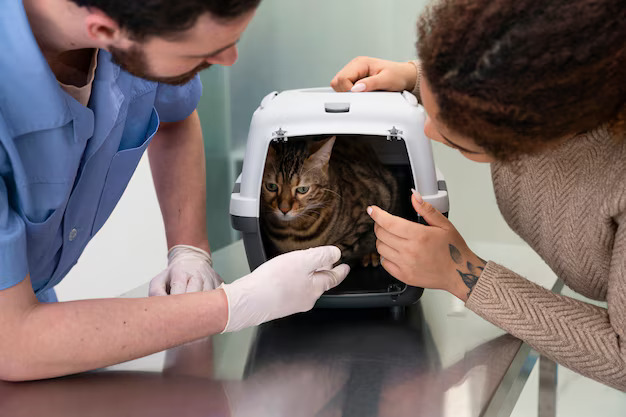As responsible pet owners, we strive to ensure the well-being of our feline companions through regular veterinary visits and routine health check-ups. One diagnostic tool that often comes up in these discussions is the cat abdominal ultrasound. This non-invasive procedure provides valuable insights into the internal health of cats, especially when dealing with unexplained symptoms. But is a cat abdominal ultrasound a necessary part of routine health check-ups, or is it only needed in specific cases? Let’s explore when this ultrasound is truly essential and how it can benefit your cat’s overall health.
Understanding the Role of Abdominal Ultrasound in Pet Health
A cat abdominal ultrasound uses sound waves to create images of the internal organs, including the stomach, intestines, kidneys, liver, and bladder. This technique helps veterinarians identify a wide range of potential health issues without needing to perform invasive surgery. The ultrasound is often used to diagnose conditions such as tumors, infections, fluid buildup, and organ abnormalities.
While it is an incredibly useful tool for diagnosis, it is not typically part of a standard, routine check-up for every cat. Instead, it’s usually recommended when a cat shows symptoms of a more serious underlying condition or when further investigation is needed beyond basic blood tests and physical exams.
When Is a Cat Abdominal Ultrasound Recommended?
There are certain scenarios in which a cat abdominal ultrasound becomes an invaluable part of your pet’s healthcare. If your cat is showing signs such as vomiting, diarrhea, weight loss, or a decreased appetite, and these symptoms do not improve with basic treatment, your vet may recommend an ultrasound to look for the root cause. Other indications include:
- Chronic abdominal pain: When your cat exhibits signs of discomfort or sensitivity when the abdomen is touched, it could indicate issues like inflammation or tumors that may be detected through ultrasound.
- Unexplained weight loss: A significant, unexplained drop in weight can sometimes point to conditions like organ failure, intestinal problems, or cancer, which an abdominal ultrasound can help diagnose.
- Abnormal blood work: If your cat’s blood tests show abnormal liver or kidney values, an ultrasound can help assess the health of these organs.
How Does a Cat Abdominal Ultrasound Compare to Other Diagnostic Tests?
While a cat abdominal ultrasound is highly effective, it’s not the only tool your veterinarian may use to assess your cat’s health. Other diagnostic methods, such as blood tests, X-rays, and pet radiography, can also provide valuable information. However, ultrasound has the advantage of offering real-time, detailed images of soft tissues that may not be visible through traditional radiographs.
For example, if a vet suspects a tumor or organ enlargement, radiographs can sometimes miss these abnormalities. In contrast, an ultrasound offers a clearer and more detailed look at soft tissues like the liver, spleen, and kidneys, which can help in making more accurate diagnoses.
The Importance of Timely Diagnostics and Preventive Care
While a cat abdominal ultrasound is not necessary for every routine health check-up, it is a crucial tool in early detection of many serious conditions. Catching potential problems early can make all the difference in terms of treatment options, recovery time, and overall prognosis. This is especially true for chronic conditions or diseases like kidney disease, which is common in older cats.
By taking a proactive approach to your cat’s health with regular check-ups and diagnostic testing when needed, you ensure that any emerging issues are addressed before they become more serious. This early intervention is key to maintaining a high quality of life for your feline companion.
Should You Consider a Cat Abdominal Ultrasound for Preventive Health?
In some cases, especially for senior cats or those with a history of health problems, a cat abdominal ultrasound may be recommended as part of a more thorough preventive care routine. Cats are experts at hiding pain or discomfort, so it’s essential to monitor their health closely. If your vet suspects that your cat may be at risk for certain internal conditions, an ultrasound may help uncover issues that are not visible through regular exams or blood work.
Key Takeaway:
While a cat abdominal ultrasound is not always necessary for every cat’s regular health check-up, it is an invaluable diagnostic tool when specific symptoms arise or when there is a need for a more detailed examination of your cat’s internal organs. Early detection of diseases like kidney failure, tumors, or infections can greatly improve the treatment outcome and quality of life for your pet. It’s important to work closely with your veterinarian to determine when advanced diagnostics like ultrasound or pet radiography are necessary, as they play a key role in proactive, effective healthcare for your furry companion.
